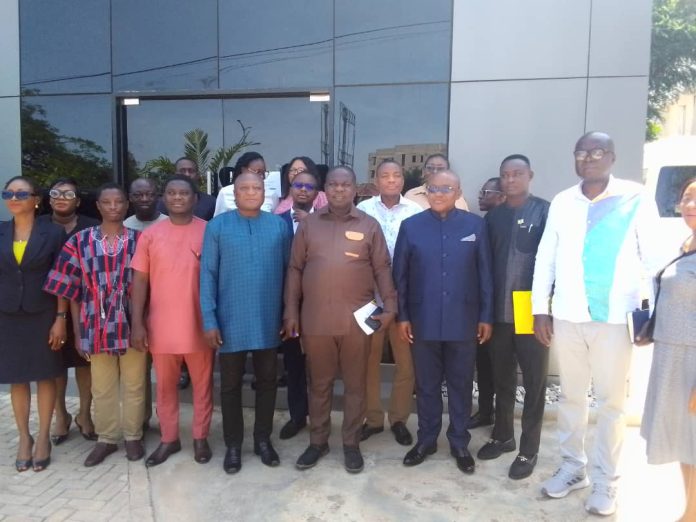
The Chief Executive Officer of the Fair Wages and Salaries Commission (FWSC), Dr. George Smith-Graham, has proposed that Ghana explore the adoption of an hourly wage system as part of broader efforts to align public sector compensation with productivity.
Speaking during a working visit by Parliament’s Select Committee on Employment, Pensions, and Labour, Dr. Smith-Graham underscored the need for a comprehensive performance management framework and a shift away from traditional compensation models that reward presence rather than output.

He said in other countries, systems exist where people are paid based on hours worked and if Ghana continue to pay for eight hours when people don’t actually work those hours, it is worth the country consider compensating for the actual hours worked.
The Fair Wages boss said if the current situation continues, “You can have a situation where there is what we call in research ‘presentism’—people are present at work but not productive.”
Dr. Smith-Graham revealed that the FWSC is preparing to pilot some of these internal reforms aimed at improving productivity, which could later serve as a model for other public institutions, adding “If it works here, we can scale it up.”
He also addressed broader structural issues within the public sector wage system, lamenting the return of pay inequities despite the introduction of the Single Spine Pay Policy (SSPP), which was intended to ensure fairness and equity in public sector remuneration. Inflation and the erosion of base salaries, he noted, have driven institutions to rely heavily on allowances—undermining the SSPP’s core purpose.
Another major challenge, according to the CEO, is the proliferation of collective bargaining certificates. “You have one institution with 10 to 14 different bargaining certificates—HR, accountants, and others all negotiating separately. It’s unsustainable,” he said, calling for parliamentary and ministerial support to streamline wage negotiations across the sector.
Dr. Smith-Graham further emphasized the need to restructure the FWSC in preparation for its transformation into an Independent Emoluments Commission—a proposed government body that would oversee salaries across all public sector entities, from the presidency to entry-level staff.
“The aim is to eliminate inequities and ensure labour stability. But this transition requires stakeholder engagement, internal reforms, and, most importantly, significant investment in training,” he said, lamenting that training remains one of the most underfunded areas in the public service.
He further proposed performance measurement benchmarks across various public institutions. Using the judiciary as an example, he said, “Can we assess how long court cases remain unresolved, or how often judgments are overturned on appeal, as a measure of performance?”
The Chairman of the Select Committee, Joseph Appiah Boateng, stated that the committee’s visit formed part of its oversight responsibilities. He pledged the committee’s support in helping the FWSC address its challenges and strengthen its capacity to fulfill its mandate.
The FWSC, established by an Act of Parliament in 2007, is tasked with implementing public sector pay policies, conducting job evaluations, coordinating collective bargaining, and advising on performance management, among other responsibilities.
He concluded by reiterating that meaningful public sector reform will require a mindset shift and sustained investment in capacity building. “Unfortunately, training budgets are often the most underfunded in public service institutions,” he said, urging that any reform agenda include deliberate provisions for training and development.








